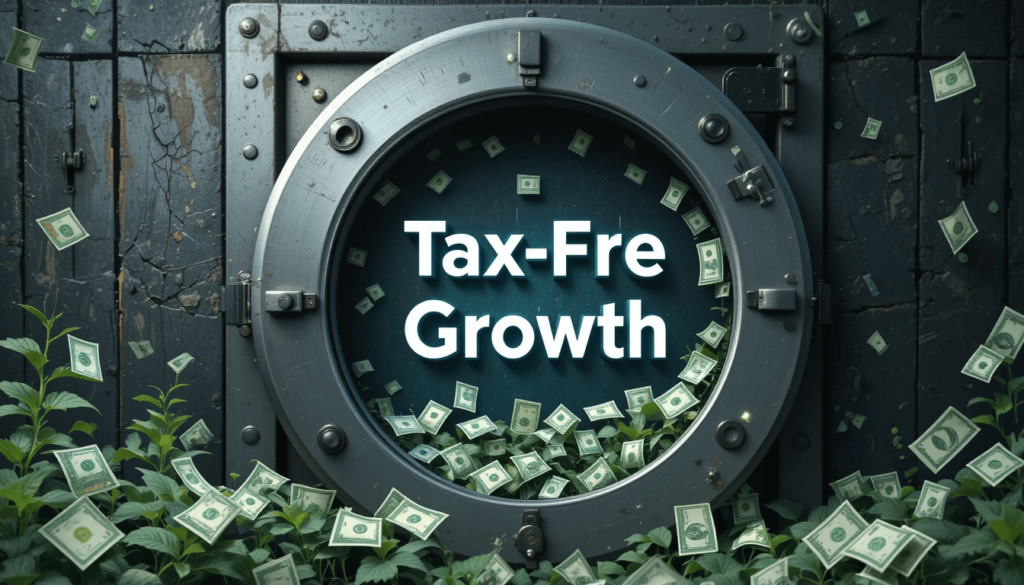You know that feeling? The one where you finally, finally, hit it big on an investment? Maybe you sold that stock you bought five years ago that nobody believed in, or you offloaded that quirky little rental property you inherited from Aunt Mildred, and suddenly, boom! A big fat profit! You’re already dreaming about that vacation, or paying down some student loans, or maybe even buying that ridiculously overpriced, but oh-so-cute, vintage lamp.
And then, like a villain swooping in during a superhero movie, you remember: taxes. Specifically, the dreaded capital gains tax. Ugh. It’s like finding a twenty-dollar bill in an old jacket, only to realize there’s a hole in the pocket. You made money, but the IRS is lurking, ready to take a chunk. It’s enough to make you want to just hold onto everything forever, even if it’s losing value, just to avoid the paperwork. Seriously, you ever feel like that? Or is it just me?
For years, I was that person. I’d see my investments go up, get excited, then get paralyzed by the thought of selling and owing a huge chunk to the government. I’d talk to friends, and they’d just shrug, like, “That’s just how it is.” But you know me, I don’t just “shrug.” I dig, prod and ask way too many questions. And what I found out is that while you can’t magically erase capital gains tax (that’d be illegal, don’t do illegal things!), there are absolutely legitimate, totally above-board Capital Gains Tax Hacks to Keep More of Your Profit. And let me tell you, knowing these can make a huge difference in your actual, take-home profit.
I mean, my track record on this blog? It’s been a ride. Some posts have been pure gold, others… well, let’s just say they were more like copper. But when it comes to keeping more of my hard-earned money, I become a financial ninja, even if my actual ninja skills are limited to tripping over air. So, pull up a chair, grab your favorite (probably lukewarm) beverage, and let’s spill the tea on how to outsmart the taxman, legally and ethically.

Understanding the Beast: What Even IS Capital Gains Tax?
Before we dive into the fun stuff (aka, how to keep your money), let’s quickly demystify this “capital gains tax” thing. Think of it like this: when you sell an “asset” (like a stock, bond, mutual fund, piece of real estate that’s not your primary home, or even that vintage comic book collection you finally parted with) for more than you bought it for, that profit is called a capital gain. The tax you pay on that profit? You guessed it, capital gains tax.
Now, here’s the crucial part, the absolute key to almost all these hacks: short-term vs. long-term.
- Short-Term Capital Gains: This is the profit you make from selling an asset you’ve held for one year or less. The IRS is like, “Oh, you made a quick buck, huh?” and they tax that profit at your ordinary income tax rate. That’s right, the same rate you pay on your salary. And let me tell you, for most of us, that’s a much higher tax bracket than the long-term rates. It’s like getting hit with surge pricing on an Uber – totally unexpected and stings a lot.
- Long-Term Capital Gains: This is the golden ticket! This is the profit you make from selling an asset you’ve held for more than one year. The IRS gives you a break here because they generally want to encourage long-term investing. The rates are significantly lower: 0%, 15%, or 20%, depending on your taxable income. For many folks, especially those in lower and middle income brackets, that 0% rate is a total dream boat!
So, the biggest, simplest, most obvious “hack” right out of the gate is: HOLD YOUR ASSETS FOR MORE THAN A YEAR! Seriously, unless you have a super compelling reason to sell early, just wait. My friend, Mark, once sold a crypto coin after 11 months because it had a huge run-up. He later found out he was in a 24% income tax bracket, while if he’d just waited one more month, his gain would’ve been taxed at 15%. He looked at me, totally lost, and said, “Dude, I seriously thought holding for almost a year was good enough!” It was a painful lesson. Don’t be Mark.

Real-Life, Totally Not-Boring Capital Gains Tax Hacks to Keep Your Cash!
Okay, let’s get into the nitty-gritty. These are strategies that I, or friends I know, have either used or seriously considered (and wished we had known sooner!).
1. The “Wait It Out” Power Play: Timing Your Sale
This is the big one I just talked about, but it bears repeating because it’s so fundamental. You bought a stock, it shot up, you’re stoked! Check the calendar. If you’re at 11 months, seriously, consider waiting that extra month to push it into long-term territory. The difference in tax rates can be huge. For someone in a higher income bracket, it can literally be the difference between paying 32% (or higher!) and 15% or 20%. That’s like getting a discount on your taxes just for being patient!
2. The “Loss Leader” Strategy: Tax-Loss Harvesting
This one is my personal favorite, especially if you dabble in the stock market. You probably have some winning investments (yay!), but let’s be real, you probably also have some stinkers that are down in value (booo!). Tax-loss harvesting is basically selling those losing investments to offset your winning ones.
Here’s how it works:
- You sell an investment at a loss.
- You can use that loss to offset any capital gains you realized in the same tax year.
- If your losses exceed your gains, you can even use up to $3,000 of those “net capital losses” to reduce your ordinary income (like your salary!).
- And if you have more than $3,000 in excess losses, you can carry them forward to future tax years. It’s like a perpetual tax credit!
My friend, Sarah, totally lost it when I explained this to her. She had a few stocks that had tanked, and she was just holding onto them, hoping they’d come back someday. “Dude, I seriously thought you just had to eat the loss!” she said. We looked through her portfolio, harvested some losses, and she ended up saving a decent chunk on her taxes that year. Just remember the “wash-sale rule” – you can’t sell a stock for a loss and then buy it back within 30 days (before or after the sale). The IRS is onto that trick!
3. The “Home Sweet Home” Exclusion: Selling Your Primary Residence
This is a big one for homeowners! When you sell your primary residence, you can exclude a massive amount of capital gains from your taxable income. We’re talking up to $250,000 for single filers and $500,000 for married couples filing jointly!
There are a few rules (of course, it’s the IRS):
- You must have owned the home for at least two years.
- You must have lived in it as your primary residence for at least two of the five years leading up to the sale.
- You can only claim this exclusion once every two years.
So, if you’re thinking of selling your house and it’s been your actual home, this is a huge benefit. My brother and his wife just sold their first house for a decent profit, and because they lived in it for long enough, they paid $0 in capital gains tax. I mean, can you imagine? That’s like finding a unicorn that also prints money!
4. The “Smart Savings Account” Approach: Tax-Advantaged Accounts
This isn’t a “hack” in the traditional sense, but it’s a foundational strategy to avoid capital gains tax altogether. Accounts like 401(k)s, IRAs (traditional and Roth), and Health Savings Accounts (HSAs) offer incredible tax benefits:
- Tax-Deferred Growth (Traditional 401k/IRA): Your investments grow, and you don’t pay capital gains tax until you withdraw in retirement.
- Tax-Free Growth & Withdrawals (Roth IRA/401k/HSA): This is the holy grail! You pay taxes on the money now (when you contribute), but then your investments grow tax-free, and your qualified withdrawals in retirement are also tax-free. That means any capital gains you make inside these accounts are never, ever taxed by Uncle Sam. It’s like a secret garden where your money just flourishes without the taxman peeking over the fence.
If you’re not maxing out these accounts, you’re missing out on a huge opportunity to legally avoid capital gains tax. It’s like leaving free money on the table, and who wants to do that?
5. The “Real Estate Loophole”: The 1031 Exchange (for Investment Property)
Okay, this one is for the real estate investors out there, and it’s a big one. A 1031 Exchange (named after Section 1031 of the IRS tax code) allows you to defer capital gains tax when you sell an investment property and reinvest the proceeds into another “like-kind” investment property.
- What it means: You sell Property A (your old rental), and instead of paying tax on the profit, you use all the proceeds to buy Property B (a new rental, or even a commercial building, as long as it’s “like-kind” investment property). The tax isn’t eliminated, it’s just deferred until you eventually sell the new property (and don’t do another 1031 exchange). You can keep doing this potentially indefinitely, passing the deferred gain along. It’s like a never-ending game of financial hot potato, where the potato is your tax bill!
- The catch: There are strict rules and timelines. You have 45 days from the sale of your old property to identify potential new properties, and 180 days to close on the new property. You also typically need a “qualified intermediary” to hold the funds.
- My anecdotal take: My friend’s parents have been doing 1031 exchanges for decades. They’ve built a massive real estate portfolio, and they haven’t paid a dime in capital gains tax on those properties yet. It’s kinda wild how powerful it is if you’re into investment real estate.
6. The “Giving Back, Getting Back” Strategy: Donating Appreciated Assets
This is a win-win, truly. If you’re charitably inclined and have investments that have significantly increased in value, consider donating those appreciated assets directly to a charity instead of selling them and then donating the cash.
- The magic: When you donate appreciated stock (or other assets) that you’ve held for more than a year, you generally don’t have to pay capital gains tax on the appreciation. Plus, you still get to claim a charitable deduction for the fair market value of the asset (up to certain limits).
- Why it’s awesome: You avoid capital gains tax, you get a tax deduction, and a charity gets more money because they don’t pay capital gains tax either when they sell the donated asset! It’s like a triple-scoop ice cream cone of tax efficiency and good deeds.

Important Things to Remember (Because the IRS Doesn’t Play)
Look, these aren’t “get out of jail free” cards. They’re smart, legitimate strategies. But remember:
- Basis is Key: Always know your “cost basis” (what you originally paid for an asset, plus any commissions or fees). This is essential for calculating your gain or loss. If you don’t know your basis, you could end up paying more tax than you owe. It’s like trying to bake a cake without knowing how much flour to put in – disaster.
- Records, Records, Records: Keep meticulous records of all your buys and sells. Your brokerage will send you a 1099-B, but it’s good to have your own records too.
- Don’t Be Greedy: Sometimes, taking a profit and paying some tax is better than waiting for a long-term gain that never materializes, or letting a loss get bigger.
- Consult a Professional: For complex situations, or if you’re dealing with significant amounts of money, seriously, talk to a qualified tax advisor or financial planner. They can help you tailor these strategies to your specific situation and avoid accidental missteps. I mean, my accountant knows things about my finances I wouldn’t even tell my best friend. They’re worth their weight in gold.
Conclusion: Smart Planning Puts More Profit in Your Pocket!
The idea of capital gains tax can be intimidating, almost like trying to assemble IKEA furniture without the instructions. But with a little knowledge and some strategic planning, you absolutely can implement Capital Gains Tax Hacks to Keep More of Your Profit. It’s not about avoiding taxes illegally; it’s about being smart and efficient within the rules.
So, the next time you see that investment soaring, or you’re thinking of selling that old house (the rental one, not your primary residence, unless you’re moving!), remember these tips. A little patience, some clever loss harvesting, utilizing tax-advantaged accounts, or exploring real estate exchanges can seriously impact your bottom line. Your future self, with more money in their pocket for that ridiculous lamp (or, you know, retirement), will thank you. Now go forth and conquer your profits!
Outbound Link Suggestion 1: A funny Reddit thread about people’s worst tax-season mistakes. (Placeholder – to find a real, relevant, and funny one) Outbound Link Suggestion 2: An article about the history of capital gains tax (because sometimes it’s fun to geek out on boring things). (This is a legitimate source for a reference.)





